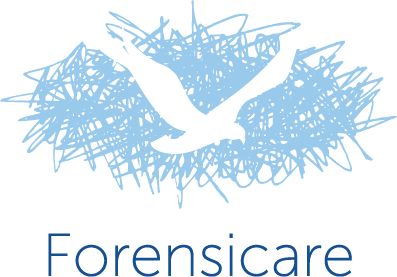Community leave has a vital role in assisting patients at Thomas Embling Hospital with their rehabilitation and recovery from mental illness. Leave can be used for various activities, such as:
- Education and training
- Employment
- Grocery shopping
- Attending medical appointments
- Consensual visits to their family
Leave can be escorted (by Forensicare clinicians), accompanied (by a family member or support person) or unescorted, and is considered by strict standards outlined in mental health legislation.
Granting community leave
The process of granting community leave for Thomas Embling Hospital patients depends on each patient, and their classification:
Forensic patients
Forensic patients are the vast majority of patients at Thomas Embling Hospital. They need their community leave considered and approved by the Forensic Leave Panel (FLP), which is chaired by a Supreme Court or County Judge.
Security patients
Security patients are those from prisons who are receiving treatment for their mental illness at Thomas Embling Hospital. Security patients are not able to access community leave, except in extreme circumstances such as for emergency medical treatment.
Civil patients
Civil patients will have their community leave considered by Forensicare clinical staff. This will be in line with legislative frame works and other Victorian mental health services.
Forensic Leave Panel
The Forensic Leave Panel is an independent body chaired by a Supreme Court or County Judge. The panel was established under the Crimes (Mental Impairment and Unfitness to be Tried) Act 1997, and takes a graduated approach to granting leave. Leave will be considered on a patient’s individual circumstances and recovery progression.
Initially, patients may be granted a small amount of escorted leave with two or three clinically-qualified Forensicare staff members. If this leave occurs safely over a long period of time, the panel may increase the purpose and duration of leave, and decrease the number of escorts.
Decisions to grant leave are very specific and time-limited. Any changes and extensions to leave need to be sought by the patient through further and separate applications to the panel.
Leave conditions
When granting leave for forensic patients, the panel takes into consideration how the leave will contribute to the patient’s rehabilitation, and the impacts the leave will have on the safety of the patient, as well as members of the public.
The panel also places various strict conditions on leave it considers appropriate, according to each applicant. Conditions commonly relate to:
- How many (if any) escorts are required
- The duration and frequency of leave
- Where a patient or resident may go (and where they may not go)
- Those who (if any) can meet with a patient or resident
- How a patient or resident is to travel to their leave destination
Thomas Embling Hospital also places conditions on leave including:
- Drug and alcohol testing following leave
- Pre and post leave assessments
- Random checks of locations to ensure patients are complying with their approved leave
Suspending leave
Leave can be suspended wholly or partly at any time by Victoria’s Chief Psychiatrist if they believe the safety of any person will be seriously endangered.
Forensicare hospital staff can also withhold patient leave if there are concerns about the patient’s mental state or risk.
Taking day leave
Before any instance of leave, forensic patients must undergo a careful examination by Forensicare hospital staff. The patient’s mental state will be considered, as well as a range of issues relating to both their and the public’s safety.
Notifications of day leave
Like any other hospital or mental health facility, Forensicare must meet the provisions set out by law under the Mental Health Act 2014, and the Privacy and Data Protection Act 2014. Forensicare is therefore unable to provide family or members of the community with specific information about patients. This includes details about a patient’s community leave.
More information
The Witness Assistance Service of the Office of Public Prosecutions plays an important role in assisting victims, family members and witnesses of serious crimes through the court process. Please contact the service if you would like further information, or have any concerns about the community leave process.




